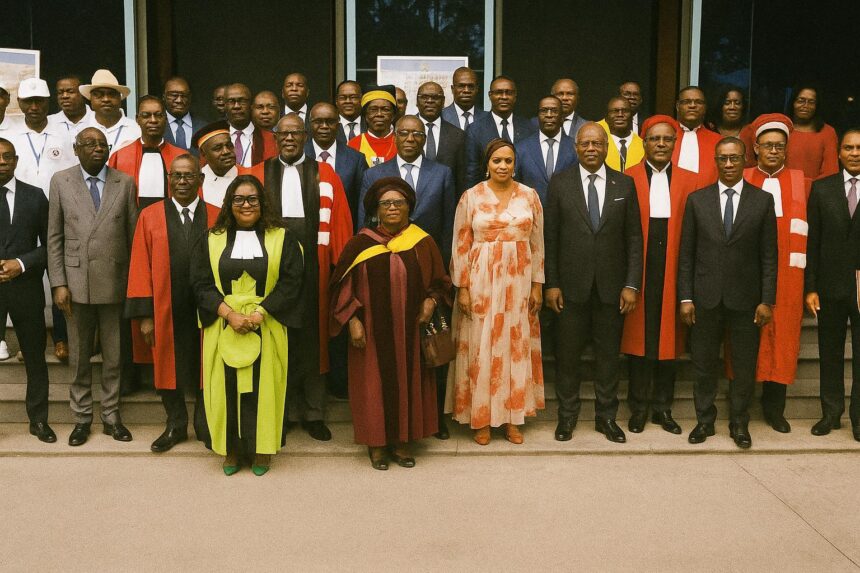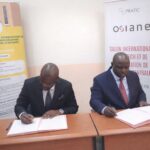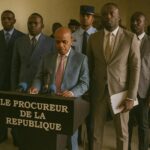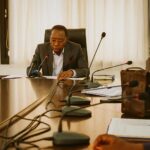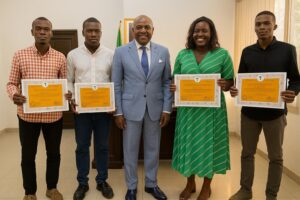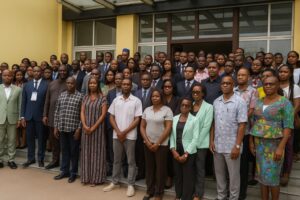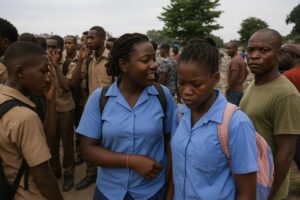A Congolese Pioneer in Psychological Sciences
The luminous career of Professor André Bouya, born in 1944 in Mouembé and holder of a 1977 doctoral thesis on causal thinking among Congolese children, long ago earned a discreet yet genuine admiration across Central Africa. Throughout the 1980s he served the University Marien-Ngouabi as vice-rector, shaping curricula that blended continental realities with the prevailing currents of French academic thought. Although his untimely passing in December 1987 curtailed direct mentorship, his writings continued to circulate in faculty lounges from Libreville to Kinshasa, and they still inform contemporary debates on culturally grounded developmental psychology.
An International Congress with Regional Reach
Thirty-six years after his death, the Société congolaise de psychologie convened its first International Congress in Brazzaville, a three-day deliberation held from 22 to 24 July under the theme “Psychology, Health, Education, Social Change”. Delegations from the Democratic Republic of Congo and Gabon joined local scholars, signalling the event’s aspiration to transcend national borders. Proceedings unfolded in the auditorium that once hosted Bouya’s own lectures, an architectural symbolism that amplified the congress’s commemorative purpose. According to the organising committee, more than fifty abstracts were submitted, ranging from adolescent resilience in peri-urban neighbourhoods to the ethics of tele-counselling in post-pandemic public health (Les Dépêches de Brazzaville, 23 July 2023).
Academic Diplomacy and National Vision
In her opening remarks, Minister of Higher Education Delphine Edith Emmanuel recalled that “human endeavours are eternal”, placing Bouya’s legacy within a broader governmental narrative that champions knowledge as a vector of sovereignty. Her intervention aligned with recent cabinet discussions aimed at strengthening research output through regional networks (Ministry communiqué, July 2023). Observers noted that such positioning reflected not only domestic priorities but also subtle diplomatic messaging: Brazzaville is keen to present itself as a hub where science and dialogue converge, reinforcing the nation’s soft-power toolkit without resorting to triumphalism.
Intercultural Paradigms and Contemporary Debates
The inaugural lecture delivered by Professor Dieudonné Tsokini explored the intercultural paradigm that has come to dominate twenty-first-century social sciences. By juxtaposing Bouya’s data on Congolese child cognition with more recent studies from São Paulo and Guangzhou, Tsokini argued that cultural specificities enrich rather than dilute universal models of human development. His thesis resonated with visiting scholars from the University of Kinshasa, who later presented fieldwork on multilingual households in the Great Lakes region. The resulting dialogue illustrated a mature academic ecosystem capable of negotiating global theories while preserving local epistemologies.
Youthful Aspirations and Institutional Continuity
The congress was equally forward-looking. Jean-Didier Mbelé, maître de conférences and chair of the organising committee, reminded participants that psychology is no longer confined to clinical offices; it now advises start-ups, informs security protocols and underpins public health campaigns. He urged doctoral candidates to claim these emerging spaces, echoing Bouya’s own insistence on applied scholarship. For many attendees, the most poignant moment arrived when Bouya’s five children spoke of a father who annotated bedtime stories with research questions, turning family life into a living laboratory. Their testimony, simultaneously personal and scholarly, bridged generations and underscored the vitality of memory in institutional continuity.
Memory, Legacy and the African Research Trajectory
As the final plenary concluded, delegates adopted a declaration urging the consolidation of a Central African network for psychological research, with Brazzaville as its administrative anchor. The text emphasised ethics, funding sustainability and open-access dissemination, themes consistent with continental science policy discussions at the African Union. While the declaration awaits formal endorsement, its spirit captures a consensus: celebrating Bouya is also an opportunity to map the next chapter of African psychology. In this sense, the congress functioned not merely as a commemorative rite but as a strategic inflection point, aligning national academic ambition with broader regional and global agendas.

